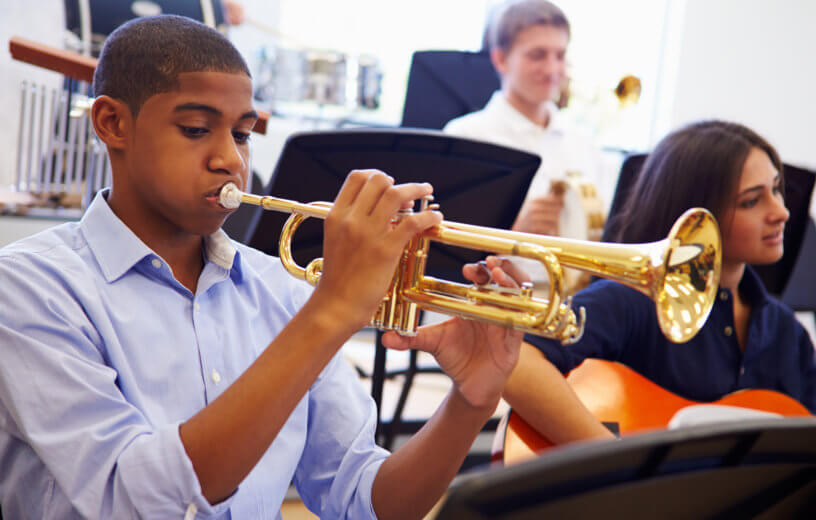VANCOUVER, British Columbia — High school music courses frequently fall victim to budget cuts due to the general belief that other subjects, such as math or history, are more important to students’ education. However, a new study performed at the University of British Columbia finds that high schoolers enrolled in at least one musical course score significantly higher than their non-musical peers on english, math, and science exams.
“In public education systems in North America, arts courses, including music courses, are commonly underfunded in comparison with what are often referred to as academic courses, including math, science and English,” says Peter Gouzouasis, the study’s lead author, in a release. “It is believed that students who spend school time in music classes, rather than in further developing their skills in math, science and English classes, will underperform in those disciplines. Our research suggests that, in fact, the more they study music, the better they do in those subjects.”
Researchers had access to data on all students in British Columbia public high schools who had graduated between 2012 and 2015. From that large data set, more than 112,000 high schoolers were selected for the study based on the following requirements; completion of at least one standardized test in either math, science, or english, and access to the students’ demographic information such as gender, socioeconomic status, and ethnicity.
Of those 112,000 students, 13% qualified as “musical students” by participating in at least one musical course (jazz band, orchestra, concert band) in either 10th, 11th, or 12th grade. The only musical courses that did not qualify were general music courses or guitar courses, because those either did not require any previous music experience or didn’t entail actually playing any music.
The study’s authors found that students who participated in musical courses had higher test scores across all subjects, and these associations were even higher among those who played and studied instrumental music.
“On average, the children who learned to play a musical instrument for many years, and were now playing in high school band and orchestra, were the equivalent of about one academic year ahead of their peers with regard to their English, mathematics and science skills, as measured by their exam grades,” Gouzouasis explains. “Learning to play a musical instrument and playing in an ensemble is very demanding. A student has to learn to read music notation, develop eye-hand-mind coordination, develop keen listening skills, develop team skills for playing in an ensemble and develop discipline to practice. All those learning experiences play a role in enhancing children’s cognitive capacities and their self-efficacy,”
Researchers say they were especially surprised at how consistently a musical background and education predicted higher test scores across all three studied subjects and all analyzed demographic factors.
Gouzouasis and his team are hopeful that their findings are shared and at least considered by North American high schools when making budgetary decisions, as well as by parents when considering whether or not to encourage their children to try out a musical instrument or course.
The study is published in the Journal of Educational Psychology.

Discovered this article ~4 years after publication. It is stunning to believe that such basic confusion between causation and correlation can exist on a website called “StudyFinds.” The sample population is biased in the alleged study cited.